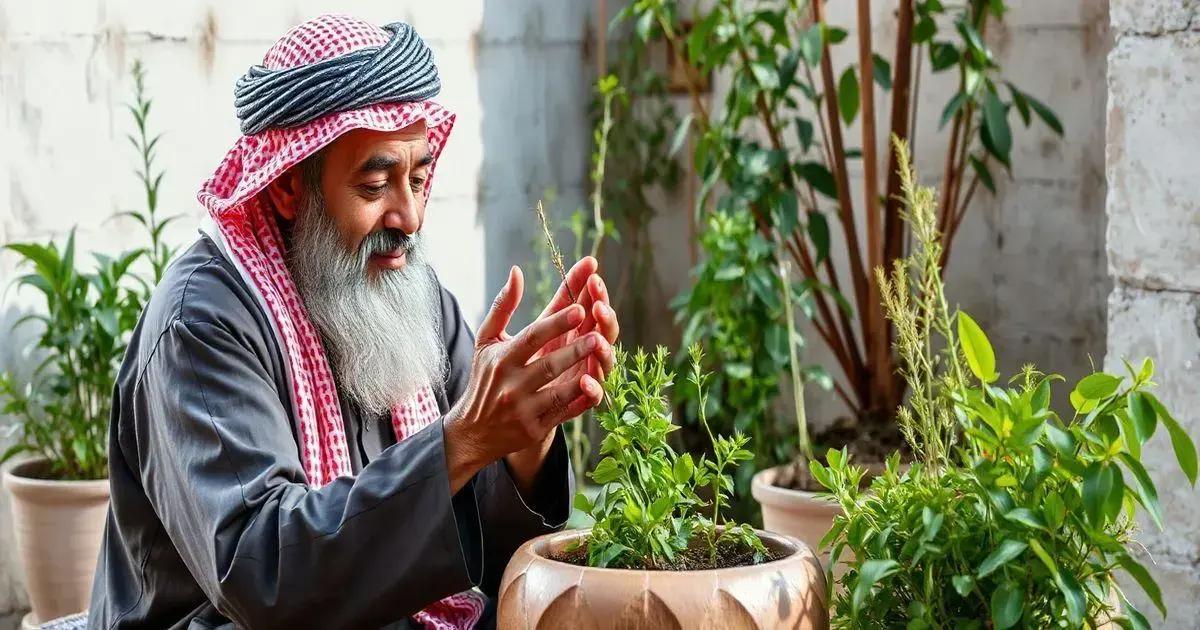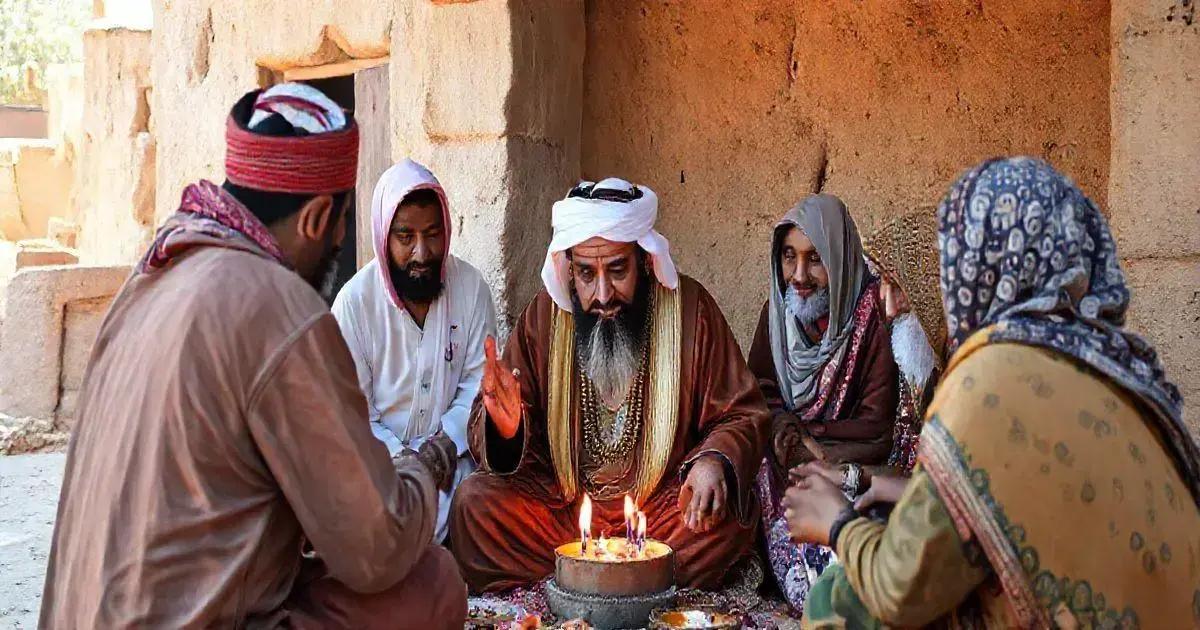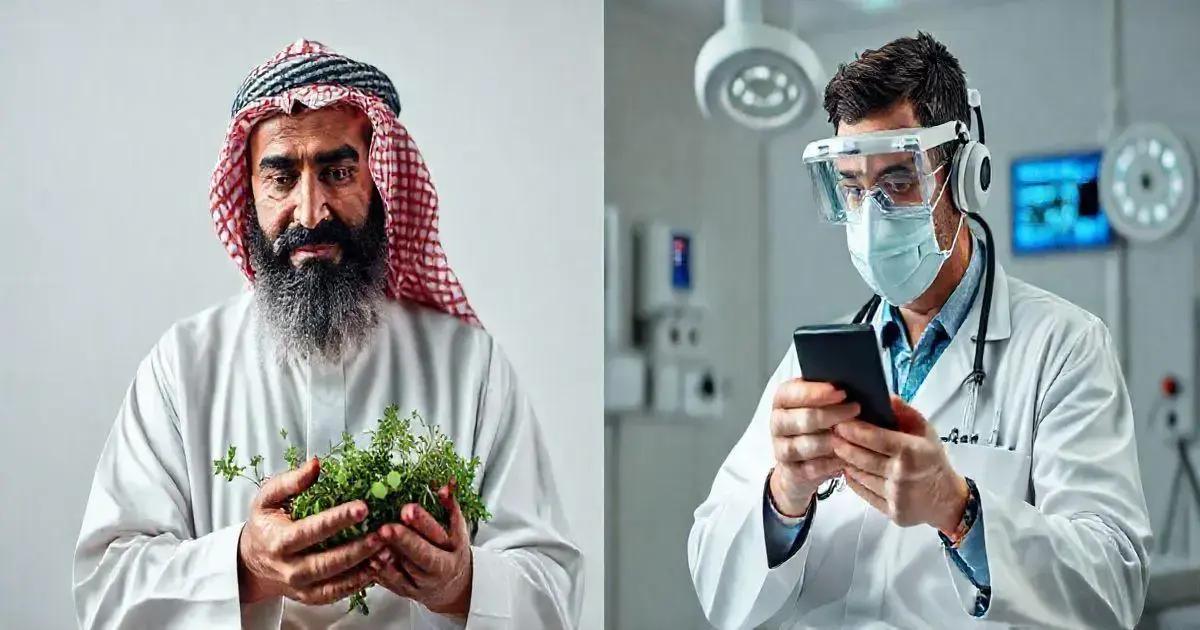The comparison between the Arab Sheikh’s Trick and modern remedies highlights traditional healing’s holistic approach and cultural significance alongside the scientifically backed, evidence-based strategies of modern medicine. Each has unique strengths, with traditional practices focusing on the emotional and spiritual aspects of health and modern treatments providing rapid and targeted relief.
The comparison between the Arab Sheikh’s Trick and modern remedies offers fascinating insights into diverse healing methodologies. Throughout history, traditional healing practices, like those of the Arab Sheikh, have shaped cultural identities and health choices. In this article, we will explore the origins and techniques of the Sheikh’s Trick, examine how contemporary remedies have evolved, and analyze their effectiveness in providing relief.
What is the Arab Sheikh’s Trick?

The Arab Sheikh’s Trick is a traditional healing method that has been passed down through generations, particularly in Middle Eastern cultures. This approach combines the elements of herbal remedies, spiritual practices, and ancient wisdom. Often, the Sheikh is viewed as a wise leader or healer who uses their knowledge to assist those suffering from various ailments.
Techniques Used in the Sheikh’s Trick
Typically, the Sheikh’s Trick may involve:
- Herbal Remedies: Utilizing local plants and herbs known for their medicinal properties.
- Spiritual Healing: Incorporating prayers, blessings, and rituals to address both physical and spiritual illnesses.
- Personalized Consultations: The Sheikh often interacts with individuals, assessing their unique situations and tailoring treatments accordingly.
Cultural Importance
This approach is not just about physical healing; it encompasses a broader view of health that integrates emotional and spiritual well-being. The practice serves as a cultural connector, fostering community ties and preserving historical knowledge.
Despite its effectiveness, the Arab Sheikh’s Trick today faces competition from modern medicine, which emphasizes scientific evidence and standardized treatments. Nevertheless, many people still turn to these traditional methods, valuing their holistic approach.
How Modern Remedies Have Evolved

Modern remedies have significantly evolved over the years, shaped by advancements in science, technology, and an increased understanding of health. Today, healthcare is more systematic and evidence-based, aiming to provide safer and more effective treatments for various conditions.
Scientific Discoveries
The evolution of modern medicine began with early scientific discoveries. For instance, the development of antibiotics revolutionized how we treat infections, drastically reducing mortality rates. Medicines are now created based on extensive research and clinical trials, ensuring their efficacy and safety.
Integration of Technology
Technology plays a crucial role in this evolution. From telemedicine to electronic health records, modern remedies are now more accessible. Patients can consult doctors online, receive prescriptions electronically, and monitor their health using various devices.
Holistic Approaches
Additionally, there is a growing recognition of holistic approaches in modern medicine. Treatments now often consider mental and emotional health, integrating therapies like mindfulness and cognitive behavioral therapy alongside conventional treatments.
Moreover, ongoing research continues to explore the synergy between traditional healing practices and modern medicine. This includes investigating the potential benefits of natural supplements and therapies, leading to a more comprehensive approach to health and wellness.
Cultural Significance of Healing Practices

The cultural significance of healing practices cannot be overstated. Healing traditions, like the Arab Sheikh’s Trick, are rooted in history and reflect the values of a community. They often weave together spiritual beliefs, cultural identities, and traditional knowledge.
Traditions and Community Ties
These practices serve as a way to strengthen community bonds. When individuals seek healing, they often turn to the Sheikh, who acts as a trusted figure within the community. This reliance fosters a sense of belonging and continuity, preserving cultural heritage.
Spiritual Connection
Moreover, healing practices often incorporate spiritual elements, making them more than just physical treatments. For many, the act of seeking help is a deeply spiritual experience, connecting them with their faith and cultural values. This aspect is often missing in modern medicine, which can feel impersonal.
Preservation of Knowledge
Traditional healing methods contribute to the preservation of indigenous knowledge and biodiversity. Many remedies are based on local plants and natural resources, showcasing the importance of sustainability in healthcare practices. This awareness has led to a renewed interest in combining Ayurvedic and traditional methods with modern medicine.
As societies modernize, the interplay between traditional and modern healing practices continues to evolve. While scientific advancements shape contemporary approaches, the rich cultural heritage behind traditional healing remains a vital part of human experience.
Comparative Effectiveness of Both Approaches

When considering the comparative effectiveness of both approaches—the Arab Sheikh’s Trick and modern remedies—it’s essential to look at various factors like treatment outcomes, patient satisfaction, and the underlying philosophies of each method.
Treatment Outcomes
Modern remedies often rely on scientific research to establish effectiveness. Clinical trials and studies evaluate medications and treatment protocols, ensuring a standardized approach to health care. Patients usually experience quick relief from acute issues, thanks to targeted therapies.
Patient Satisfaction
However, many individuals who use the Arab Sheikh’s Trick report benefits beyond physical health. The spiritual aspect and personalized care provided by traditional healers often lead to high patient satisfaction. Patients feel emotionally supported and more connected to their culture and traditions.
Philosophical Approaches
Philosophically, modern medicine tends to view health as the absence of disease. In contrast, the Arab Sheikh’s Trick treats the whole person, focusing on the emotional and spiritual dimensions of health. This holistic view can provide long-term benefits by addressing root causes rather than just symptoms.
Ultimately, both approaches have their strengths and weaknesses. While modern remedies excel at treating specific conditions rapidly, traditional methods offer a more personalized and holistic experience. The best choice often depends on individual preferences and the specific health issues being addressed.
In Conclusion: Bridging Tradition and Modernity
The exploration of the Arab Sheikh’s Trick and modern remedies reveals a fascinating interplay between tradition and contemporary science. Each approach offers unique strengths—traditional healing provides a rich cultural experience and holistic support, while modern medicine offers evidence-based efficacy and rapid relief.
As society continues to evolve, there is a growing recognition of the importance of integrating these two worlds. By valuing both the ancient wisdom of traditional practices and the advancements of modern science, individuals can benefit from a more comprehensive understanding of health and wellness.
Ultimately, the best health approach may vary from person to person, depending on individual needs, preferences, and beliefs. Embracing a diverse range of healing practices can empower people to find the solutions that work best for them.
FAQ – Frequently Asked Questions about the Arab Sheikh’s Trick and Modern Remedies
What is the Arab Sheikh’s Trick?
The Arab Sheikh’s Trick is a traditional healing method that integrates herbal remedies, spiritual practices, and personal consultations to provide holistic care.
How have modern remedies evolved?
Modern remedies have evolved through scientific research, technological advancements, and a focus on evidence-based treatments to address various health issues effectively.
What are the cultural significance aspects of healing practices?
Healing practices hold cultural significance as they strengthen community bonds, preserve traditional knowledge, and provide spiritual connections for individuals seeking help.
How do traditional healing and modern medicine compare in effectiveness?
While modern medicine provides rapid and targeted treatment, traditional healing offers holistic care and emotional support, making each approach effective in different ways.
Can both approaches be beneficial?
Yes, integrating both traditional healing and modern remedies can offer a comprehensive understanding of health and wellness, allowing individuals to choose what works best for them.
Is traditional healing still relevant today?
Absolutely. Traditional healing methods continue to be relevant, often working alongside modern medicine to address a wide range of health concerns while respecting cultural heritage.













